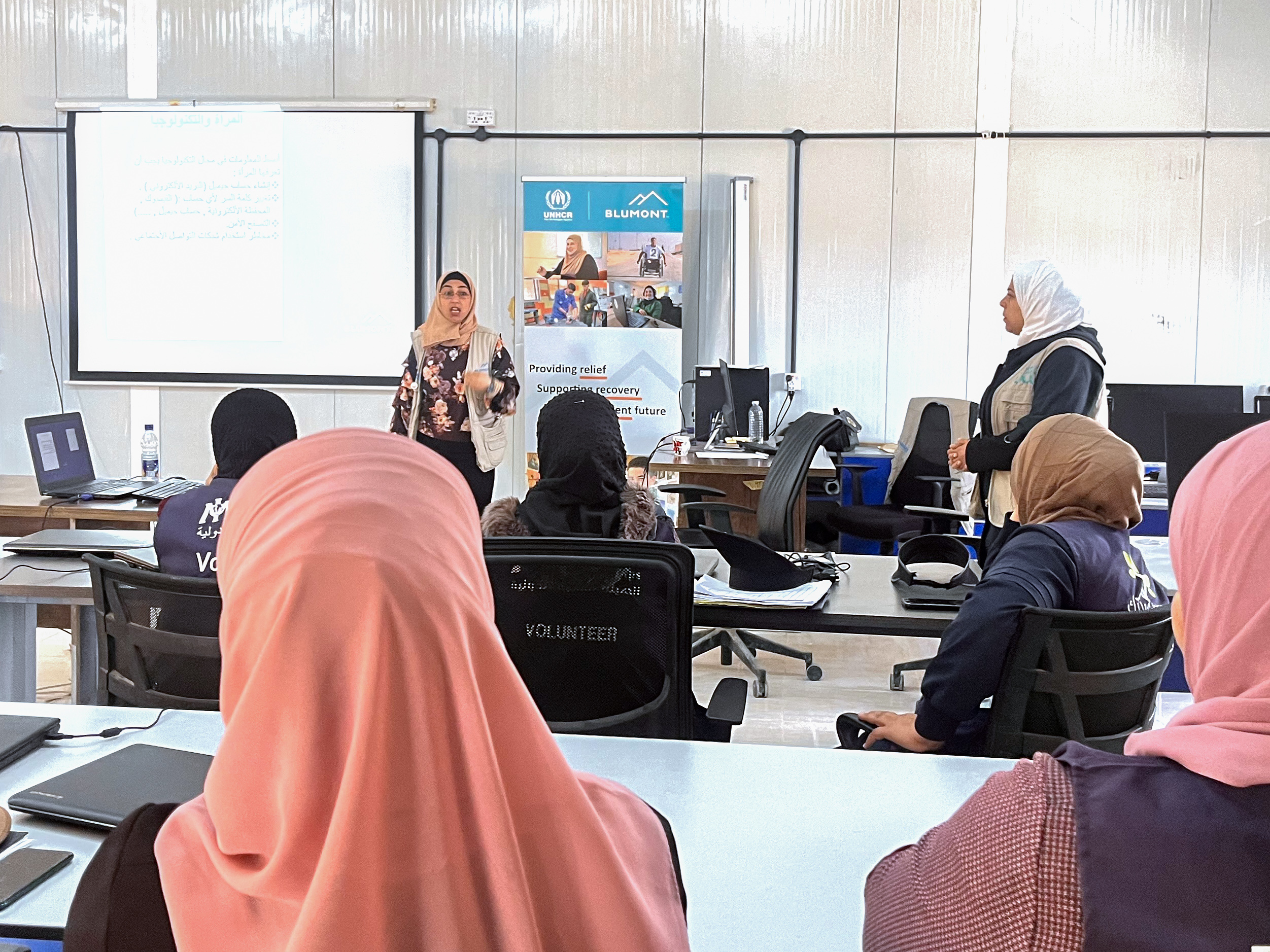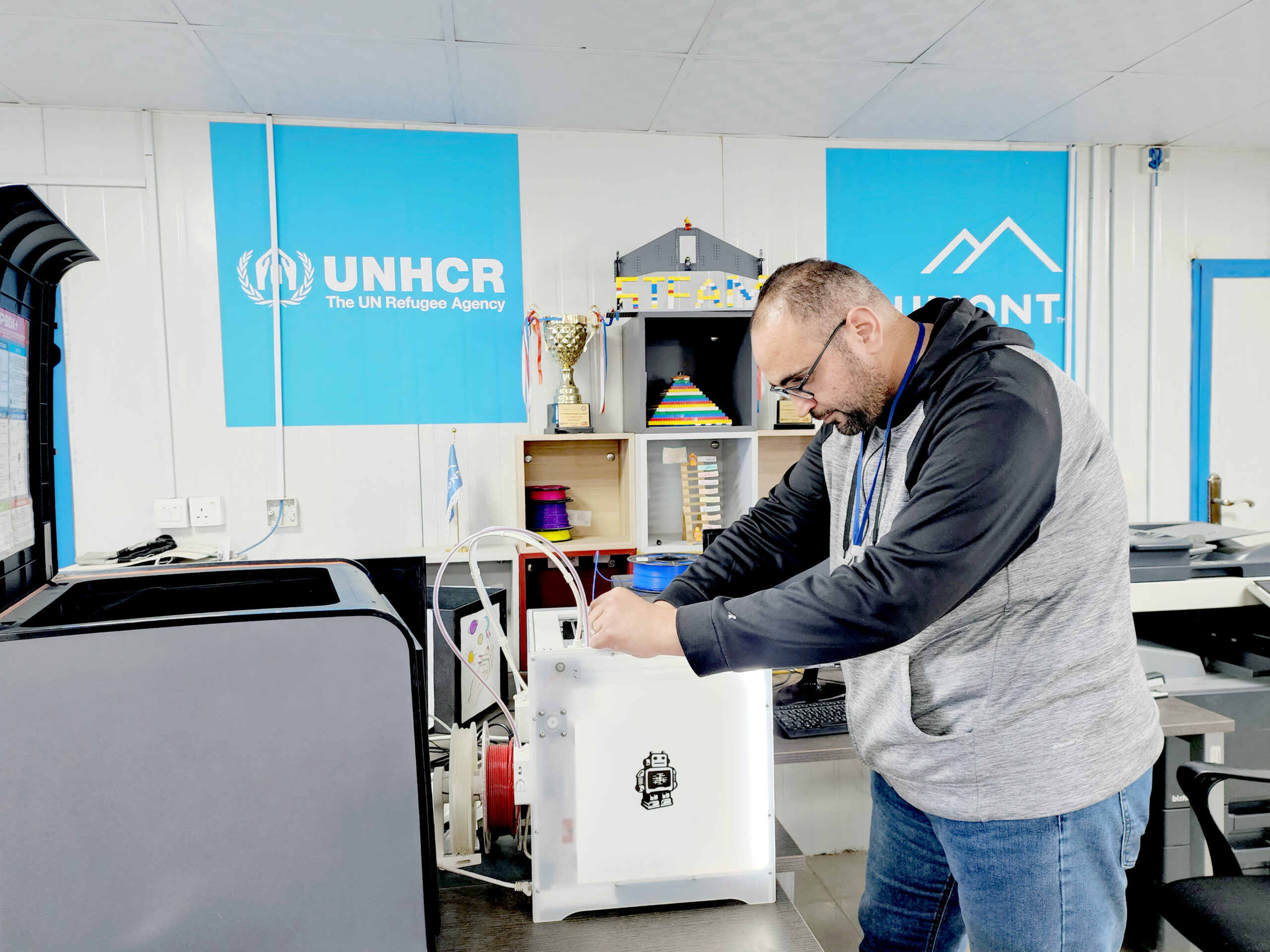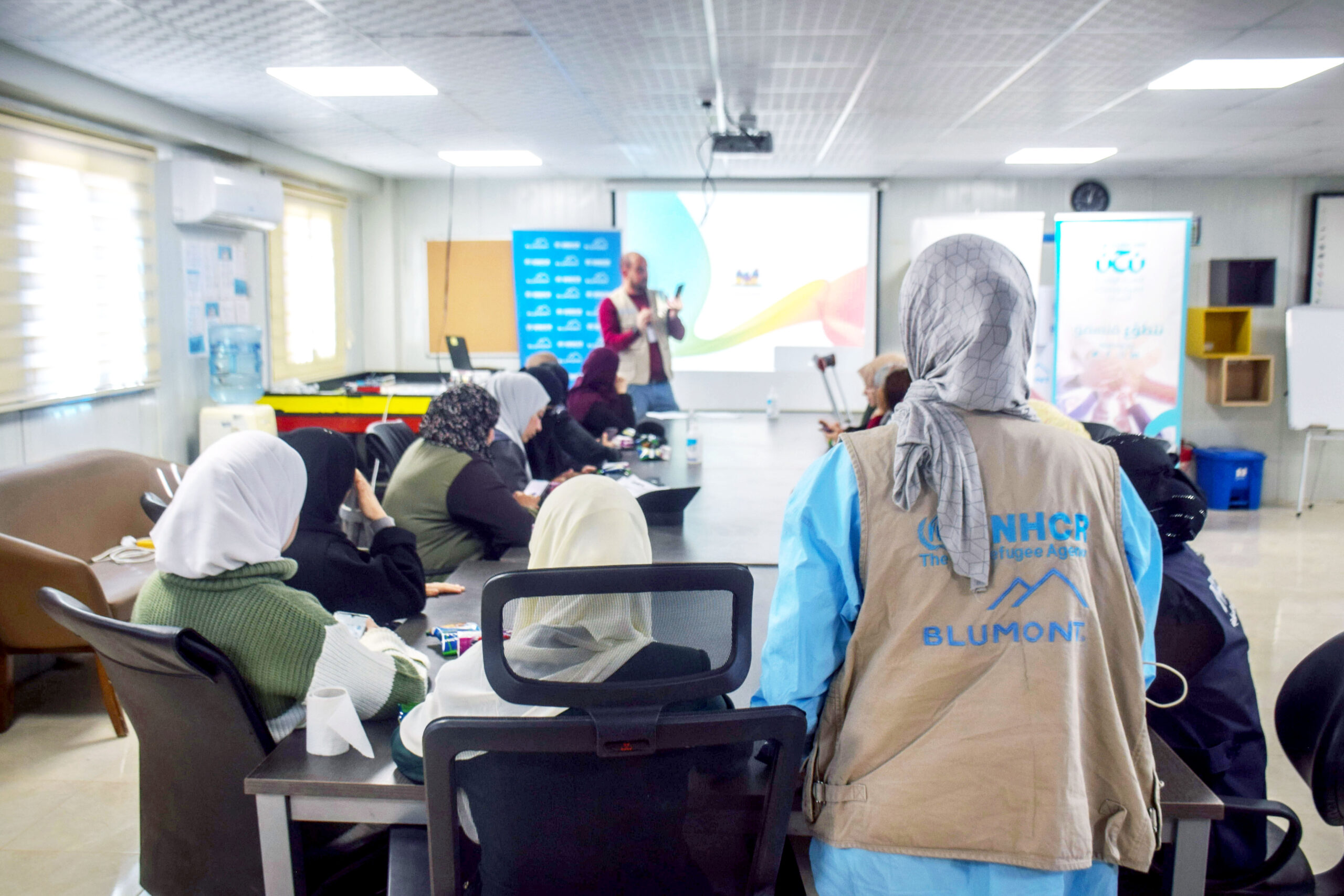Residents of the Za’atari Refugee Camp in Jordan can connect to world-class learning opportunities, career training, banking, and more through mobile phones or computers. As our Uplift team works with the community at the Innovation Lab and Learning Hubs, we incorporate digital safety and security to ensure that people are safe as they explore online.
Emran, Blumont’s lead for the Innovation Lab, has coordinated learning activities in collaboration with International Medical Corps and Nahno (Crown Prince Foundation) to promote digital safety – especially for women and girls.

Women from Za’atari Camp attended trainings on digital safety and technology use.
“At the Innovation Lab, we aim to provide women and girls with the technical support and capacity building to be more empowered and achieve a brighter future,” he said.
Through events and activities at the Lab, Emran noticed that many women in the camp were hesitant to engage online because they did not have digital literacy skills. “[They] can’t create or use e-mail accounts,” he said, “or they don’t have the proper knowledge of how to browse the internet safely and not to share any information with untrusted websites.”
A training called “Safe Web Browsing” was designed for women, who may encounter harassment online. The participants learned basic skills and discussed digital threats and how to avoid them.
Another session focused on protecting personal information online. “It’s very important that women understand how to protect themselves in this online world, especially on how to protect their social media accounts and e-wallets,” Emran said.

Emran leads the Innovation Lab, where refugees living in Za’atari Camp can learn digital skills, use computers, and explore many types of technology.
The Uplift team also covered mobile applications that can help women and girls access resources for physical safety and mental health services. One app, called Amaali, was designed specifically for refugees by the Sexual and Gender-based Violence Working Group in Jordan. The app provides users with access to resources, services, and reporting mechanisms if they have experienced or feel at risk of sexual or gender-based violence.
Participants also learned about Relax, an application developed by the International Medical Corps in Jordan. Relax aims to raise awareness about the importance of mental health, improve access to mental health services, and provide online resources.

A training called “Safe Web Browsing” was designed for women, who may encounter harassment online.
A separate digital literacy course was designed to engage the camp’s elderly community. Older residents were introduced to technology that could help them stay safe while staying connected. Topics included the dangers of scams, how to use e-wallets, and important terminology related to mobile phones and the Internet.
Ahmad, a camp resident who attended the training, shared his takeaways from the day: “We learned about new ways to improve our use of technology available to us and that smartphones can be used for more than communicating and taking pictures.”



